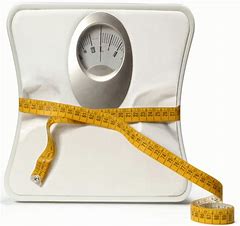
Samuel came into my office yesterday for his initial intake. He lost a lot of weight, some came back. He’s been trying everything he can think of to reverse the trend, but now he’s just stuck at the same. I’ve see this story before. Another version – Rachel, a longtime client of mine, has lost 48 kilograms (105 pounds) and has been stuck in a range for the last year. Rachel has done incredibly well with weight loss and bettering her health, but now she is stuck! Or how about my good friend who tells me his weight isn’t in a terrible place, but his recent 2 kilo gain just won’t come off.
What’s causing this storyline to keep occurring?
Let’s have a look at what’s going on.
Things have changed
Most people, including health professionals and even some nutritionist and dieticians, still think that everything comes down to calories in and calories out. However current research and several well-constructed, recent studies clearly show that there is more to losing weight than cutting calories.
Here’s a look at what current research, and my clinical successes tell us about weight loss.
The quality of what we eat matters
Foods that promote healthy, sustainable weight loss are high in fiber, nutrient dense, and water heavy. This includes fruits, vegetables (including starchy ones like potatoes, corn, and sweet potatoes), whole grains (particularly intact grains like brown rice, quinoa, and oats), lentils, beans, and some seeds and nuts.
Although you can make calorie equivalence eating highly processed foods, animal proteins, and dairy in quantities that are common in the western diet, poor quality food can keep you from getting through a plateau.
Exercising more doesn’t necessarily help
Exercise is an integral part of health. Everyone, overweight or not, needs to fit minimal exercise into their day. But exercise is NOT a big player in weight loss. It helps, and it certainly is a great predictor of not regaining weight, but don’t rely on exercise alone to lose weight and break through your plateau.
Are you sleeping enough?
Lack of sleep will cause you to either gain weight or not lose weight. It is also a risk factor for chronic diseases, especially diabetes. Aim for 7-8 hours of sleep each night. Don’t be tempted by the ease with which we can communicate all over the world today. Fix a bed time and stick to it.
Stop eating early!
You’ve likely heard about intermittent fasting. Instead of looking at it as another fad, quick fix solution (that never works), use its principles in a smart way. Stop eating around 7 or 7:30 every night and drink water or green teas as needed until bedtime. The break from food combined with a good night’s sleep, allows your body and your microbiome to reset every night. This will be incredibly helpful to your weight loss. I know of people who started doing this 12-14 hours nightly and saw big successes.
Stay hydrated!
There is nothing like good old water! Drinking about 8 cups a day, together with eating water heavy foods, will keep you hydrated and keep you from overeating. Water is crucial for every vital system in your body to work efficiently.
Eat enough!

Yes, if you under eat your metabolism can become incredibly slow. My new client, Samuel, is a full grown young adult. He was given a very low calorie diet by a dietician. Samuel feels terrible all the time, and he isn’t losing weight. I have increased his calorie consumption and this will help him start feeling better. I look forward to seeing an increased resting metabolic rate, too. Samuel is just getting started, but he will be putting all of these measures into practice. I am confident that in another 7-10 days his breakthrough will start.
Speak to a qualified professional to know how much you should be eating. It’s kind of like a Goldilocks situation, not too much, not too little—just right.
Breaking the plateau
My long-time client Rachel started losing weight again after she went back to getting a good night’s sleep. Rachel is also drinking more water and starting to give her body 12 hours off of food every night. My friend that just couldn’t get rid of the 2 kilo didn’t change anything in terms of his calorie consumption. He changed his foods to mostly whole foods, plant-based and the two kilo went down very quickly.
I get so much satisfaction when I see people who have been struggling break through. I know many people use the “natural set point” theory for an excuse not to lose weight. We all do have a set point, but it is usually a lot lower than we think. Practicing the behaviors described above and eating a mostly whole food, plant-based diet can bring great success in breaking through your weight plateau, and “add hours to your day, days to your year and years to your life.”


Thank you, Alan.
I really relate to all you write.
Thank you for all the tips and advice!